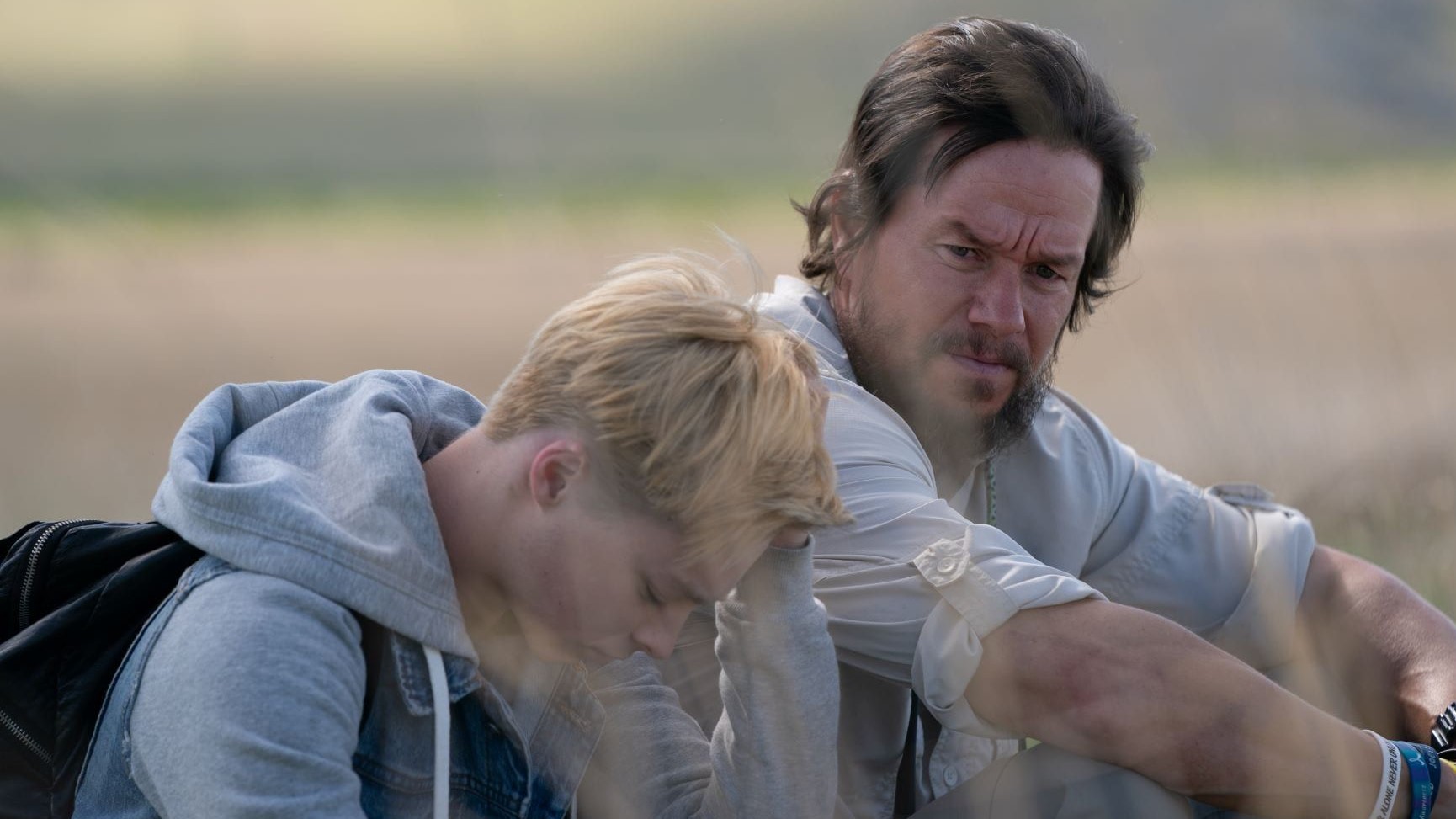What to Watch Verdict
This is just another film that trades on queer pain for straight sympathy and faux enlightenment.
Pros
- +
▪️ I hope some dad out there learns to treat his son better because he relates to Joe Bell.
Cons
- -
▪️ Joe Bell is a bad character who develops off-screen and, arguably, not at all.
- -
▪️ The cross-cutting of past and present disguises poor scripting and a baffling attempt at a twist.
- -
▪️ Jadin Bell is the embodiment of the stereotype that gay lives are doomed to be tragic.
- -
▪️ The true story this is based on does not leave much of a story to tell.
This article contains spoilers for Joe Bell, which is based on real events that are explicit in the trailer.
Joe Bell is easily one of the worst attempts at queer-affirming cinema in recent memory. There is certainly something distasteful in saying that about a film with such apparent good intentions, but it does no justice to its themes or portrayal of real events with its mangled narrative structure and baffling choices in where to focus its priorities. It’s a mess that hopes to skate by on sentimentality, a series of disconnected scenes that barely hold together as a film. But more fundamentally, it’s a film for uncritical straight audiences to reaffirm their tolerant bone fides without examining the ways in which gay tragedy is exploited for their consumption.
The titular Joe (Mark Wahlberg, giving the same performance Mark Wahlberg always gives) is walking across the country to talk to people about the harmful effects of bullying. The impetus for this is his son Jadin (Reid Miller), a gay teenager subjected to emotional and physical abuse by his classmates in their small rural town. Jadin accompanies his father on this road trip, acting as a constant companion for Joe and a snarky embodiment of Joe’s conscience when he doesn’t live up to his ideals for how one should stand up to bigotry.
Of course, if you are at all familiar with the story of Jadin Bell (or the trailer for this film), then you know from the outset that the real impetus for Joe’s journey was Jadin’s suicide as a result of the bullying he endured. And yet, the first act of the film ends with the supposedly shocking reveal of Jadin's death, implying that the Jadin on Joe’s road trip is either a physical embodiment of Joe’s guilt and personal growth, or, more preposterously, is a literal ghost. Whether Joe Bell cribs this bizarre attempt at a twist from A Beautiful Mind or The Sixth Sense — the former raises some big questions about how Jadin is able to interact with his environment or tell Joe things he likely didn’t otherwise know, while the latter would be tonally jarring and borderline disrespectful — Joe Bell doesn't posit a satisfying answer either way. It’s a perpetually frustrating narrative choice, since the underlying premise of being based on a true story completely undermines the spectral fantasy.
The film’s remaining hour is devoted to jumping back and forth between the events leading to Jadin’s suicide and Joe’s episodic non-adventures during the six months he trekked, and there is nary a coherent story or character arc to be found in the process. Part of this is from how relatively uneventful Joe’s journey is, but it mostly comes down to Joe being a remarkably unlikeable character. He is constantly shown to be dismissive of Jadin’s attempts to reach out to him for support when he was alive, emotionally volatile toward his suffering wife (Connie Britton) and other son (Maxwell Jenkins), and completely incapable of standing up for his stated beliefs even as he faults Jadin for not standing up to his tormentors.
These character flaws aren’t in themselves a problem; they’re the basis for an arc, and the film seems to at least rudimentarily understand this. However, the non-chronological crosscutting between past and present seems like an intentional trick to mask the fact that Joe’s realization of his flaws never really manifests on screen. The closest we get is a climactic scene where Joe exposits his guilt to a friendly sheriff (Gary Sinise) in the ultimate display of telling the audience that Joe’s character has developed over showing it. If anything, the film inadvertently implies that Joe achieved growth by abandoning his support network and refusing to support his family in turn. There just isn’t much of Joe’s story to tell, especially for a film named after him, which makes for a critical problem that is wallpapered over rather than addressed directly.
This is only further compounded by the film’s treatment of Jadin, who is less character than repository for queer pain. Whether Reid Miller is a good actor is indiscernible here since he plays nearly every scene on the verge of tears, the result of writing and direction that prioritizes the ways others hurt him for his gay identity instead of how his homosexuality was an integral part of his personality. There’s some slight humanization in the form of a secret romantic dalliance with a football player, but it’s a subplot that goes nowhere and primarily pads the film for time as it struggles to reach ninety minutes. Overall, Joe Bell is more concerned with the impact Jadin had in suffering and dying than in the person he was while alive, acting as a perpetuation of the harmful trope that queer lives are full of nothing but pain. Just because the real Jadin may have felt that his suffering was inescapable does not mean that the audience isn’t allowed a perspective that proves him wrong or rebuts that presumption.
The latest updates, reviews and unmissable series to watch and more!
In Mark Wahlberg’s closing monologue, Joe confesses outright that his walk was selfishly more about him than it was about Jadin, and that line feels perilously close to a self-aware admission of Joe Bell’s shortcomings. The best that can be said is that some nominally tolerant father of a queer child might see this movie and bring their own lack of support into focus by identifying with Joe, but that does not make up for the movie’s inability to articulate its own reason to exist. In the end, whatever its intentions, this is just another film that trades on queer pain for straight sympathy and faux enlightenment, and it barely even manages to conceal its feeble grasping for any further depth.
Joe Bell opens in theaters on July 23, 2021.
Leigh Monson has been a professional film critic and writer for six years, with bylines at Birth.Movies.Death., SlashFilm and Polygon. Attorney by day, cinephile by night and delicious snack by mid-afternoon, Leigh loves queer cinema and deconstructing genre tropes. If you like insights into recent films and love stupid puns, you can follow them on Twitter.


